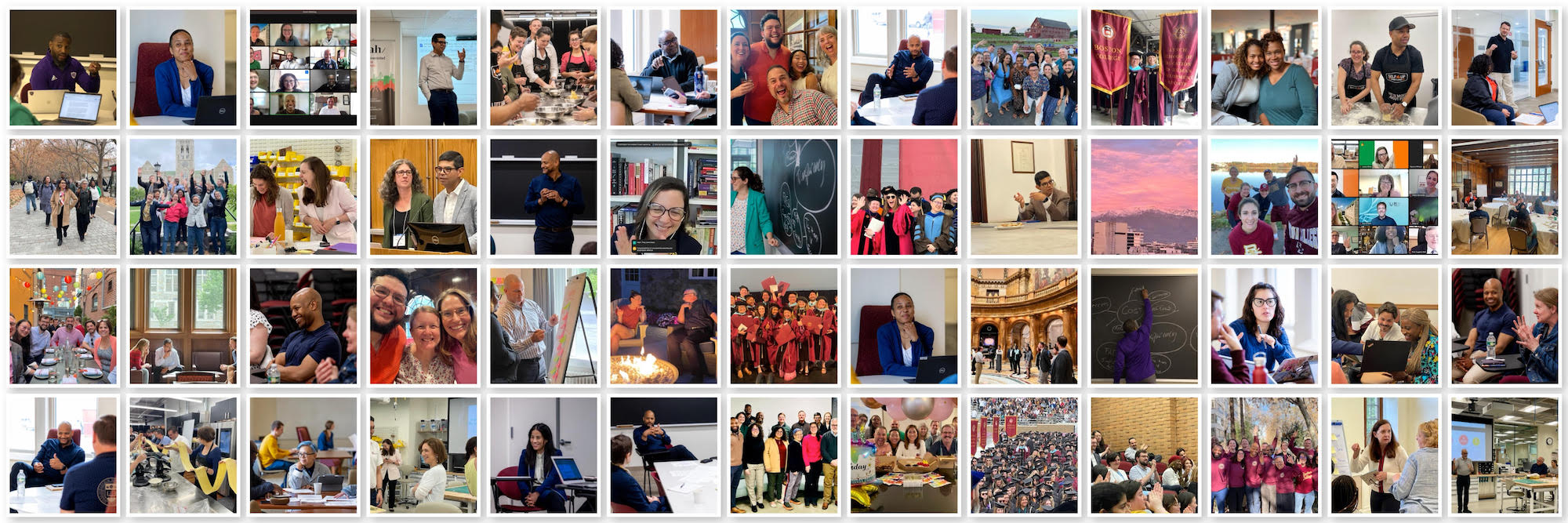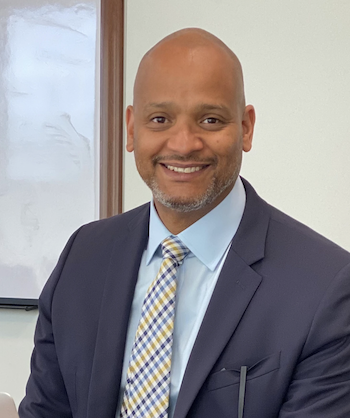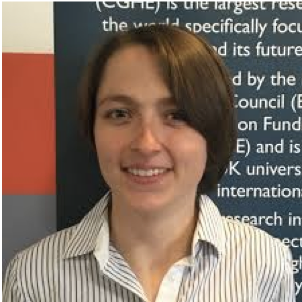

The Executive Ed.D. in Higher Education develops agile leaders for an era of rapid change. The innovative curriculum emphasizes global and international perspectives, socially just leadership, data-informed strategy, and iterative design thinking to reimagine the future of higher education.
Looking to elevate your leadership?
Talk with our team to learn about the program, the application process, and how we prepare executives to lead change.
Join a cohort of experienced leaders from various academic, institutional, and professional backgrounds in a diverse and dynamic learning community.
Expand your perspectives by engaging leaders in the US and around the world, leveraging the resources of the Lynch School's prestigious Center for International Higher Education.
Develop strategic capabilities that integrate data-driven insights with socially just leadership to drive meaningful change.
Personalized academic advising and executive coaching empower leaders ready to navigate complex challenges with clarity, purpose, and impact.
The program combines online coursework with week-long summer residencies. Courses blend async and sync formats designed for executive schedules, with any live meetings for core courses scheduled on Fridays from 12:00-1:30pm (Eastern Time).

While on Boston College's beautiful Chestnut Hill campus, students attend the Doctoral Proseminar and Law, Policy, and Politics of Higher Education. The dynamic city of Boston serves as a backdrop for cohort-building and networking activities. The first residency is the first full week in June each year. Tuition is inclusive of accommodations and most meals for all three summer residencies. Students are responsible for airfare and any costs associated with visas.

In the second year of the program, the cohort travels abroad for an immersive international experience. The location rotates, with past and future residencies in Dublin, Santiago, and other major global cities. Students gain a comparative perspective on Managing Change in Higher Education. Students meet with university leaders, policymakers, and government officials to discover strategic approaches to managing change. The international residency is the second full week in June each year.

Students visit Boston College’s picturesque Connors Center, located in Dover, MA. In this retreat setting, students complete the course Strategic Problem Solving through Design Thinking. Catholic Higher Education concentration students also participate in the Institute for Administrators in Catholic Higher Education. The third residency is in mid-July each year.

"I am inspired by the program’s unique emphasis on executive formation within a collaborative community, where faculty and peers challenge you to think strategically and innovatively while navigating the complex politics and transitions inherent in higher education leadership."

"The program's global focus and emphasis on intercultural competence perfectly aligns with my work leading COIL initiatives and virtual exchange programs, offering both the scholarly foundation and practical strategies needed to connect students worldwide despite resource constraints."

"After working in international higher education for several years, I value how BC's faculty guide my research —helping me develop frameworks that enable universities to understand what forms of knowledge they privilege or exclude, questions made urgent by AI's transformation of education."

"As someone committed to higher education as an engine of social mobility, this Executive Ed.D. equips me to navigate today's challenges—from managing diverse portfolios in resource-constrained environments to reimagining how universities can transcend political divisions and serve all learners."

“This program delivers the rigorous scholarship and data-informed strategies I need to champion equity-focused internationalization in Colombian higher education—providing the research skills, collaborative opportunities with faculty and peers, and data-driven approaches to lead transformative change.”

"True leadership requires not just expertise but the confidence to voice it—Boston College's focus on academic excellence, supportive community, and focus on whole-person leadership formation empower me to step boldly into the leadership roles I've been called to play."

"I am managing significant change at my university, and I’ve discovered both transferable solutions and a reflective Jesuit community where leaders ground managerial intuitions in solid intellectual frameworks while understanding our call to serve ambitiously.

"The intersection of international education and Global Catholicism in BC's curriculum, combined with online flexibility and intensive residencies, provides the multidisciplinary research foundation I need to align diverse stakeholders and create societal impact."

"After nearly a decade at Wellesley leading everything from career education to launching the Hillary Rodham Clinton Center, the program provides the external perspectives and supportive community I need to navigate the tightrope of executive leadership."

"Leading national and institutional reforms efforts taught me that lasting impact requires more than implementation: it demands data-driven decision-making and deep, systemic change. The program empowers leaders to design transformative reforms grounded in evidence and global insight, integrating mission, data and resources for long-term impact. A key strength of the program is its global cohort of experienced leaders, whose diverse perspectives enrich discussions and deepen collective learning."
“ In an era of increased disruption and rapid change, higher education needs a new kind of leadership. This program will help participants reimagine institutions, execute difficult decisions, discern whether traditional ways of conducting business are still relevant, and attend to issues of justice and purpose. ”
Students learn in an executive-style format that involves case studies and research-based discussions that develop the skills, mindsets, and knowledge needed to address complex issues facing higher education in the United States and around the world.
Students take 6-credits (two courses) per semester on average.
Students select three elective courses with guidance from their faculty advisor. Elective options focus on change management, international higher education, and related topics, including an elective offered in partnership with Luiss Business School in Rome, Italy. This course brings LBS and BC students together to study big data analytics, AI in education, IT governance, and EdTech innovation while gaining insights into European higher education.
| Course | Course Title | Credit |
|---|---|---|
| ELHE8201 | Doctoral Proseminar for Ed.D. in Higher Education Students are introduced to the expectations for doctoral work. Topics include community norming, group processes and communication, evidence-informed praxis, and the fundamentals of translating research to practice and practice to research. This course meets online during the summer term as well as on-campus during the first residency. | 3 |
| ELHE8202 | Law, Policy, and Politics of Higher Education This course focuses on law, policy, and politics in contemporary higher education issues and trends. Students will be introduced to the U.S. legal and political system, as they examine substantive policy issues from multiple perspectives. Students will explore the U.S. legal system through issues such as discrimination based on race and ethnicity and disability, as well as free speech rights. We will discuss public and private institutions of higher education and encourage students to offer comparative perspectives from other higher education contexts globally. This course meets online during the summer term as well as on-campus during the first summer residency. | 3 |
| ELHE8203 | Social Justice and the Foundations of Higher Education Students explore how higher education functions in relation to societal needs and social stratification. Through intergroup dialogue, students share diverse perspectives and lived experiences to examine how institutions structure educational access and opportunity. Students analyze institutional responses to social justice imperatives, including historical reckonings, contemporary initiatives, and methods for assessing institutional progress. The course emphasizes both critical analysis and practical application through collaborative discourse on pressing challenges in U.S. and international higher education. This course meets online in the fall term. | 3 |
| ELHE8206 | Leading Teaching and Learning This course integrates research in the learning sciences, human development, and organizational design to explore and lead innovations in higher education. Students engage with four key areas: reimagining the college curriculum to address its challenges, analyzing global trends shaping the future of learning and work, examining emerging ecosystems in higher education, and designing strategies to foster innovative organizational cultures and processes. This course meets online in the spring term. | 3 |
Elective I and II Students will select two electives to take in the fall, spring, or summer semesters after the first residency. Students choose from elective options with concentrations in change management, socially just leadership, and international higher education. | 3 |
| Course | Course Title | Credit |
|---|---|---|
| ELHE8205 | Managing Change in Higher Education This course discusses models of governance, locus of control, leadership, and strategic environments for American and international institutions of higher education. It provides students with an understanding of strategic management and leadership, including goal definition, organizational and environmental analysis, and decision-making to effect positive change in their organization and society. Prominent higher education leaders will co-instruct sections of this course. This course meets online during the summer term as well as in Santiago during the second summer residency. | 6 |
| ELHE8204 | Data-Driven Decision-Making I This course introduces students to paradigms and ontological assumptions about data, challenging students to think critically about the nature of information as evidence and its interpretation in educational contexts. Throughout the course, students will develop greater familiarity with conceptual and methodological issues in educational research practices. Focusing on framing research problems and questions, students will develop essential skills in identifying and articulating key issues in higher education research. Students will be introduced to quantified language (correlation, causation) and critical qualitative data collection processes (interviews, focus groups, photo voice). By engaging with real-world data and contemporary research methodologies, students will develop artifacts demonstrating their capacity to meaningfully engage and consume research output in their professional practices.
This course meets online in the fall term. | 3 |
| ELHE8211 | Executive Formation This course invites students to explore four dimensions of their lives – wellness, voice, management, and mission – with the goal of enhancing their effectiveness as executive leaders. It includes a 360º leadership assessment, case study discussions, executive skills labs, guest speakers, writing and reflection exercises, and team coaching sessions with breakout discussions. This course meets online in the fall term. | 3 |
| ELHE8207 | Data-Driven Decision-Making II This course develops students' capacity to analyze and interpret quantitative and institutional data in educational contexts. Students examine descriptive statistics, data visualization, and analytical approaches using student-level, institutional, and national datasets. Students critique published research that uses different methodological approaches and connect these analyses to their problems of practice while developing skills in data evaluation and evidence-informed decision-making. This course meets online in the spring term. | 3 |
Elective III Students will choose an elective to take in the spring or summer semester in their second year. Students choose from elective options with concentrations in change management, socially just leadership, and international higher education. | 3 |
| Course | Course Title | Credit |
|---|---|---|
| ELHE8208 | Strategic Problem Solving through Design Thinking This course explores the principles and phases of design thinking as well as the dynamic cycle of learning and leadership. Students cultivate the mindsets and behaviors of successful innovators, such as empathy, curiosity, collaboration, and a willingness to embrace experimentation as they complete a design challenge. The course emphasizes active learning through seminar-style discussions, coaching on mindsets of innovation, multimedia interviews and interactive case examples, innovation lab site immersion, and panel discussions with executive and design thought leaders. This course meets online during the summer term as well as at the Connors Retreat Center during the third summer residency. | 6 |
| ELHE8209 | Executive Doctoral Seminar I Doctoral candidates develop a dossier, a comprehensive portfolio that synthesizes academic and policy research to address a self-selected problem of practice in higher education. Candidates write and revise scholarly artifacts to demonstrate their advanced competencies in law, policy, and leadership; data-driven decision-making; and mission-driven strategy. Examples include research papers, policy briefs, case law analysis, secondary data analysis, data visualizations, etc. The seminar provides structured support for dossier development through faculty guidance, peer feedback, and dedicated writing support. This course meets online in the fall term. | 3 |
| ELHE8210 | Executive Doctoral Seminar II Doctoral candidates finalize and defend their dossier in an oral presentation to their doctoral committee at a public defense, demonstrating their ability to critically analyze contemporary issues, lead change, advance equity and inclusion, and resolve complex challenges in higher education. This course meets online in the spring term. | 3 |
As an extension of Boston College's scholarship in Catholic education, students also have the option to pursue a concentration in Catholic Higher Education – currently the only graduate program in the United States with this unique degree concentration.
The goal of this optional concentration is to engage students in articulating, animating and assessing the characteristics of a vibrant 21st-century Catholic college or university. Students will join in formative activities including opportunities for communal prayer and liturgy, meals and dialogue with relevant leaders, and ongoing professional development on current topics in Catholic Higher Education.
The optional concentration will consist of 3 courses (9 credits) taken as electives. Students will also attend the annual Institute for Administrators in Catholic Higher Education during their final summer residency, providing an opportunity to network with a broad international Catholic administrator community.
| Course | Course Title | Credit |
|---|---|---|
| ELHE8201 | Doctoral Proseminar for Ed.D. in Higher Education Students are introduced to the expectations for doctoral work. Topics include community norming, group processes and communication, evidence-informed praxis, and the fundamentals of translating research to practice and practice to research. This course will meet online during the summer term as well as on-campus during the first residency. | 3 |
| ELHE8202 | Law, Policy, and Politics of Higher Education This course focuses on policy, law, and contemporary higher education issues and trends in the U.S. and across the world. Students will examine substantive law and policy issues from multiple, comparative perspectives. We will focus on topics such as the right to education; discrimination based on gender identity, sexual orientation, race and ethnicity, and disability; free speech rights; searches and seizures, and due process. This course meets online during the summer term as well as on-campus during the first residency. | 3 |
| ELHE8203 | Foundations of Social Justice in Higher Education Students explore how higher education functions in relation to societal needs and social stratification. Through intergroup dialogue, students share diverse perspectives and lived experiences to examine how institutions structure educational access and opportunity. Students analyze institutional responses to social justice imperatives, including historical reckonings, contemporary initiatives, and methods for assessing institutional progress. The course emphasizes both critical analysis and practical application through collaborative discourse on pressing challenges in U.S. and international higher education. This course meets online in the fall term. | 3 |
| ELHE7506 | Spirituality, Faith & Formation in Higher Education This course provides an exploration of spirituality, faith, and formation within the context of higher education broadly, with particular attention to strategic initiatives from Catholic institutions of higher education. Drawing from interdisciplinary perspectives, including theology, sociology, psychology, and education, students will examine the theoretical foundations and practical implications of integrating spirituality and faith into student development, institutional culture, leadership formation, and policy development. Through scholarly resources, case studies, discussions with practitioners, and reflective exercises, students will engage with key concepts and practices aimed at fostering holistic growth and formation with particular attention to the spirituality and faith of students, faculty, and staff within diverse higher education settings. | 3 |
| ELHE8206 | Leading Teaching and Learning This course teaches students to apply learning theory, student development theory, and adult development theory to practical issues around teaching and learning in higher education. The course helps students to understand the contours of learning, teaching, and curriculum with a critical lens, including key trends and relevant issues in higher education institutions and systems around the world. This course meets online in the spring term. | 3 |
| ELHE7504 | Religion and Higher Education This course explores the historical, sociological and cultural dynamics between religion and higher education. After preliminary discussion of the nature of education and religion from a socio-political perspective, we examine the historical foundations of contemporary higher education with roots in Church sponsored enterprises. Topics include secularism, modernity, and challenges to the integration of faith and intellectual life. Additional topics include; religious pluralism; religion in secular higher education; legal issues surrounding religion and higher education; modernism, postmodernism, post-secularism and the tensions and opportunities that these cultural/intellectual movements pose for religion and higher learning in a modern, democratic, pluralistic society. This course meets online in the spring term. | 3 |
| Course | Course Title | Credit |
|---|---|---|
| ELHE8205 | Managing Change in Higher Education This course discusses models of governance, locus of control, leadership, and strategic environments for American and international institutions of higher education. It provides students with an understanding of strategic management and leadership, including goal definition, organizational and environmental analysis, and decision-making to effect positive change in their organization and society. Prominent higher education leaders will co-instruct sections of this course. This course will meet online during the summer term as well as abroad during the second summer residency. | 6 |
| ELHE8211 | Executive Formation This course invites students to explore four dimensions of their lives – wellness, voice, management, and mission – with the goal of enhancing their effectiveness as executive leaders. It includes a 360º leadership assessment, case study discussions, executive skills labs, guest speakers, writing and reflection exercises, and team coaching sessions with breakout discussions. This course meets online in the fall term. | 3 |
| ELHE8204 | Data Driven Decision Making I This course introduces students to paradigms and ontological assumptions about data, challenging students to think critically about the nature of information as evidence and its interpretation in educational contexts. Throughout the course, students will develop greater familiarity with conceptual and methodological issues in educational research practices. Focusing on framing research problems and questions, students will develop essential skills in identifying and articulating key issues in higher education research. Students will be introduced to quantified language (correlation, causation) and critical qualitative data collection processes (interviews, focus groups, photo voice). By engaging with real-world data and contemporary research methodologies, students will develop artifacts demonstrating their capacity to meaningfully engage and consume research output in their professional practices. This course meets online in the fall term. | 3 |
| ELHE8207 | Data-Driven Decision Making II This course develops students' capacity to analyze and interpret quantitative and institutional data in educational contexts. Students examine descriptive statistics, data visualization, and analytical approaches using student-level, institutional, and national datasets. Students critique published research that uses different methodological approaches and connect these analyses to their problems of practice while developing skills in data evaluation and evidence-informed decision-making. This course meets online in the spring term. | |
| ELHE7503 | Catholic Higher Education This course offers an historical, philosophical, cultural and organizational overview of Catholic higher education through a survey of current scholarship and related Church documents, and an examination of the role of Catholic higher education and its relationship with the Church, contemporary academic culture, and the broader society. This course will engage students in an analysis of contemporary issues facing Catholic higher education particularly, faith and reason, the Catholic intellectual tradition, Catholic social thought, governance & leadership models, student formation, and assessment of institutional mission, identity, and culture. This course will be taken online during the spring term. | 3 |
| Course | Course Title | Credit |
|---|---|---|
| ELHE8208 | Strategic Problem Solving through Design Thinking Strategic design thinking drives innovation and can be a significant factor in a leader’s ability to solve problems. Students will learn principles and various phases of design-thinking as they practice creative problem-solving in the context of a partner institution. Topics include problem identification, needs assessment, and the role of technology. Content will include team projects, case studies, and guest lectures from experts in higher education and in design thinking. This course will meet online during the summer term as well as on-campus during the third summer residency. | 6 |
| ELHE8209 | Executive Doctoral Seminar I Doctoral candidates develop a dossier, a comprehensive portfolio that synthesizes academic and policy research to address a self-selected problem of practice in higher education. Candidates write and revise scholarly artifacts to demonstrate their advanced competencies in law, policy, and leadership; data-driven decision-making; and mission-driven strategy. Examples include research papers, policy briefs, case law analysis, secondary data analysis, data visualizations, etc. The seminar provides structured support for dossier development through faculty guidance, peer feedback, and dedicated writing support. | 3 |
| ELHE8210 | Executive Doctoral Seminar II Doctoral candidates finalize and defend their dossier in an oral presentation to their doctoral committee at a public defense, demonstrating their ability to critically analyze contemporary issues, lead change, advance equity and inclusion, and resolve complex challenges in higher education. This course meets online in the spring term. | 3 |





The Lynch School of Education and Human Development provides more than $10.8 million in financial aid to students each year. As a result, the quality of BC’s instruction, the benefit of our alumni network, and the impact a BC degree will have on your employment options is both affordable and invaluable.
To be eligible for the doctoral program, applicants must already hold a master's degree and have 7 years or more of professional experience in higher education, including colleges, universities, non-profit organizations, government agencies, consulting firms, and education technology companies that work with higher education institutions.
Prerequisite Information: To be eligible for the EdD program, applicants must already hold a master's degree and have 7 years or more of professional experience in higher education or a higher education-adjacent field.
A non-refundable application fee of $75 is required. The fee is waived for select applicants.
Summer 2026:
To be uploaded to your online application.
In addition to your academic history and relevant volunteer and/or work experience, please include any licenses currently held, any social justice-related experience, any language skills other than English, and any research experience or publications.
To be uploaded to your online application.
In lieu of a traditional personal statement, we ask for responses to each of the following questions. Please number the questions and limit your response to each question to 500-750 words.
Please submit three letters of recommendation with at least one from an academic source. Together, these letters should comprehensively address your academic achievements, analytic writing, critical thinking, and problem-solving skills, as well as your capacity for senior leadership roles, professional accomplishments, and ability to collaborate effectively on diverse teams.
Tip from the Admissions Team: Reach out to recommenders early to share your graduate school goals and confirm they can meet your deadline. Make sure to enter your recommender's contact information correctly on the application, as it can't be edited after you submit. Taking these steps generally leads to stronger letters and less stress.
Transcripts from all college/university studies are required.
For degrees from the United States and Canada, unofficial transcripts may be used for application review. Official transcripts will be required upon enrollment.
Applicants who have received degrees from institutions outside the United States should view the "International Students" section for additional credential evaluation requirements or talk to a member of our team.
Please begin your online application before submitting your transcripts. Details on how to submit transcripts and international credential evaluations can be found within the application. In order to ensure your transcript reaches our office, it is important to review and follow the instructions.
GRE scores are not required. If you wish to send GRE scores, the Lynch School GRE code is 3218.
Please view the "International Students" section for information on English Proficiency test requirements.
To be uploaded to your online application.
Submit a writing sample that demonstrates your analytical thinking and writing skills. The sample can originate from your graduate program or any stage of your professional career, such as an academic paper, a report, a proposal, an evaluation, or any comparable written work. You are invited to preface the submission with a brief introduction that provides the background and context for the admissions committee. The writing sample should be a minimum of 3 pages with no maximum page limit, and you should be the sole or primary author of the work.
Applicants who have completed a degree outside of the United States must have a course-by-course evaluation of their transcript(s) completed by an evaluation company approved by the National Association of Credential Evaluation Services (NACES). Submission of falsified documents is grounds for denial of admission or dismissal from the University.
Applicants who are not native speakers of English and who have not received a degree from an institution where English is the primary language of instruction must also submit a TOEFL or IELTS test result that meets the minimum score requirement.
Please click the link below for full details on these requirements.
Requirements for International Students
Tip from the Admissions Team: Order your credential evaluation and submit all documents to the evaluator at least one month before your program’s deadline. During peak application times, delays are common and can lead to missed deadlines.
gsoe@bc.edu
617-552-4214